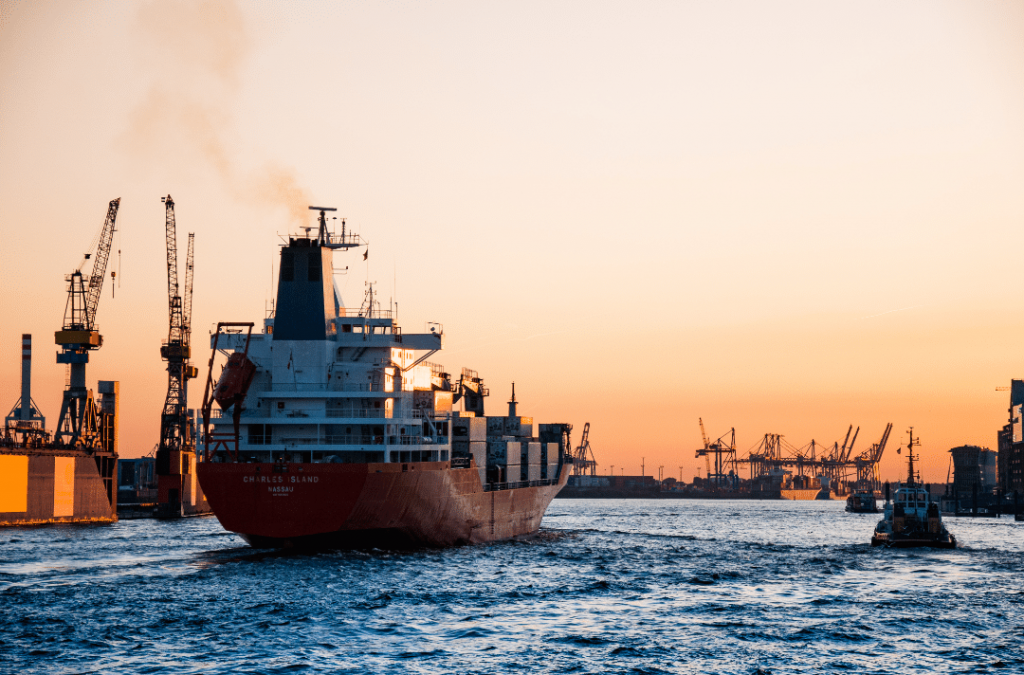Career Trends: November 15, 2022
Curated by the Knowledge Team of ICS Career GPS

Content Credit:
- Article published on in.indeed.com. Original article link.
Careers on the sea are positions that involve working on or near a large body of water, like a lake, ocean or pond. There are a variety of careers and industries that employ professionals to work near the sea, some of which include research, biology, education, transportation and engineering. When working in a position on the sea, you may work in a sea vessel, such as a ship or submarine, or you can work in a building located near the water, such as a research facility.
Learning about different careers in the marine field may help you determine which job interests you the most.
1. Marine Engineer
- Marine engineers are professionals who are responsible for creating and building sea vessel structures.
- They create a variety of ships, including submarines, cruise ships, sailboats, fishing vessels, aircraft carriers and tankers.
- Typically, they create a blueprint that provides an outline of a project’s development plans, then they work on an engineering team to construct the vessel.
- They may create specialised vessels according to a client’s needs.
- Marine engineers may also work on building oceanic platforms, land and structures.
- They also work on sea vessel maintenance, which includes repairing electrical systems and ventilation equipment.
2. Ecologist
- Ecologists are responsible for researching and presenting information on the relationship between living organisms and their natural habitats.
- It is common for ecologists to work on the sea to study marine wildlife and to better understand how aquatic animals live in oceanic environments.
- They conduct investigations to classify habitats, wildlife and plants and then create documentation about their scientific research.
- Typically, they publish their research in a scientific journal.
3. Geologist
- Geologists are responsible for studying different elements of the earth.
- Many geologists specialise in marine geology, which involves analysing and studying different aspects of the ocean floor to find changes in its composition or to discover new natural elements.
- They may also study the floor of other bodies of water, like lakes or ponds, depending on their specific field of study and research objectives.
4. Marine Manager
- Marine managers oversee different aspects of a ship’s crew.
- Their main goal involves ensuring that each member of a ship’s crew is safe and knowledgeable of their specific duties.
- They oversee the crew, instruct them of their duties and provide training and onboarding for each crew member. Marine managers also communicate with a ship’s operations manager to ensure that the ship’s workforce operates efficiently. They often find areas of improvement within their crew to increase productivity and optimise a ship’s functionality and provide feedback on specific improvements to their crew to help them enhance their performance.
5. Boat Captain
- Boat captains are responsible for leading a ship’s crew to ensure that their vessel sails safely and efficiently.
- They may sail a boat throughout lakes, rivers, oceans or bays, and they use their knowledge of different bodies of water to determine the best way to operate a vessel.
- Boat captains typically hire and manage a ship’s crew, and they resolve issues that a ship’s manager or senior crewmen may not be able to solve.
- They also use radio equipment to communicate with other vessels or professionals located on the mainland.
6. Marine Biologist
- Marine biologists are professionals who study a variety of oceanic wildlife and organisms to understand how they interact with their natural environment.
- They may study organisms within a natural environment, like viewing them on the ocean floor or within a coral reef, or they may view them in a controlled environment, which involves studying them from a lab.
- They also study the different characteristics of wildlife to understand how each feature impacts their environment.
- Some marine biologists study the effect that humans have on oceanic wildlife, to assess the risk of extinction for specific species.
7. Deckhand
- Deckhands are responsible for assisting a ship’s crew in transporting goods and handling standard operations.
- They often perform duties that include handling machinery, cooking meals and assisting with ship maintenance and cleanliness.
- Deckhands often follow a strict schedule that involves routine cleaning and cooking, along with assisting management with performing transportation operations, like loading and unloading goods.
8. Rigger
- Riggers are responsible for building sailboats and rigging the various parts of the vessel, like beams, clamps and pulleys.
- They use machinery to set the equipment, then they align it and level it so that the sailboat is stable within the water.
- Before beginning a project, they choose the proper rigging gear depending on the type of sailboat they are creating and the client’s sailing preferences.
- Before finishing a project, they inspect their rigging to ensure it is safe to use.
…
Have you checked out yesterday’s blog yet?
The Way of Contemplation — According to Thomas Merton
(Disclaimer: The opinions expressed in the article mentioned above are those of the author(s). They do not purport to reflect the opinions or views of ICS Career GPS or its staff.)




One Reply to “What Are Marine Careers?”